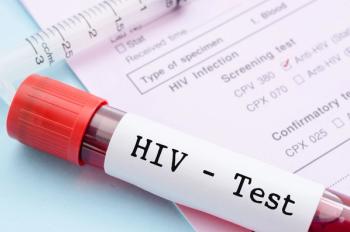
Pharmacists address aspects of patient care that are unique to the focus of the pharmacist, such as financial toxicity and data collection for components of social determinants of health (SDOH).

Pharmacists address aspects of patient care that are unique to the focus of the pharmacist, such as financial toxicity and data collection for components of social determinants of health (SDOH).

Cheryl Larson, president and CEO of the Midwest Business Group on Health, discussed the employers’ perspectives on pharmacy benefit manager (PBM) reform efforts and how they can dovetail with the concerns of pharmacies.

Christian John Lillis, co-founder and executive director at Peggy Lillis Foundation, discusses the role of the pharmacist in education that advances C diff awareness in the medical community.

In the second part of his interview with Pharmacy Times, PharmD, CSP, AAHIVP, a clinical pharmacist and subject matter expert with Shields Health Solutions, discussed pharmacists’ role in HIV education and management.

With their final thoughts, the panelists provide key takeaways from their conversation regarding CDK4/6 inhibitor therapy in treatment of HR+/HER2- metastatic breast cancer.

Dr Kettle provide insights into unmet needs surrounding treatment of metastatic breast cancer.

Lisa Deschamps, CEO of AviadoBio, discusses frontotemporal dementia and AVB-101, a one-time therapy designed to stop disease progression by delivering a functional copy of the GRN gene and restoring progranulin levels in the brain.

Expert discusses changes health care professionals should know about drug coverage and out-of-pocket costs through the IRA

Robert Sidonio Jr, MD, MSc, discusses studies on inhibitor formation in patients with hemophilia A using prophylaxis, addressing the challenges of mitigating inhibitor risk and the impact on treatment strategies.

Lisa Schrade, PharmD, explores the implications of real-world data comparing standard half-life and extended half-life products in hemophilia A treatment.

Ince describes why patients who are considered fragile are often underdiagnosed and undertreated, and that the VOYAGER PAD analyses can encourage the treatment of the fragile population.

Bonaca also notes that pharmacists can play a key role in educating patients and clinicians about the appropriate use and dosing of antithrombotic drugs for vascular protection.

Harrington discusses how the performance of milvexian in prior phase 2 trials focused on different patient populations creates the foundation for future research.

Sehnert emphasizes that mavacamten treatment benefits were present in both patients with sarcomere mutation positive HCM and sarcomere mutation negative HCM.

Experts discuss challenges and recommendations for addressing diversity, equity, and inclusion in pharmacy programs for minority students.

Drs DiMarco and Moore weigh the benefits and barriers associated with clinical pathways in treating patients with mBC.

Medical experts weigh in on key points of emphasis surrounding medication therapy management for patients diagnosed with mBC

Atta Chowdhry, RPh, and Robert Sidonio Jr, MD, MSc, discuss the emergence of gene therapy as an exciting option for patients with hemophilia A and highlight benefits, limitations, and ongoing research in the field.

Lisa Schrade, PharmD, and Robert Sidonio Jr, MD, MSc, discuss strategies for identifying and managing adverse effects in outpatient hemophilia A treatment, emphasizing collaboration and patient education.

Ronna Hauser from the National Community Pharmacists Association (NCPA), discusses updates regarding reimbursement, pharmacy benefit manager (PBM) reforms, and direct and indirect remuneration (DIR) fees.

Although SGLT2 inhibitors are not a cure of diabetic kidney disease, this treatment can help reduce the risk and manage the disease either alone or with complementary therapies.

Other than dialysis, Shah notes that patients with kidney disease who are pregnant can receive either nifedipine or labetalol to control blood pressure.

Nickolas also describes how the use of novel imaging technologies, microRNA, and transcriptomics help experts better understand underlying pathogenesis of ROD.

Awdishu describes the implementation of new equations to accurately drug dose in patients as well as provide updated guidance on the dosing of older medications.

Leung discusses that various cancer types and drugs can cause thrombotic microangiopathy and impact kidney health and the renal complications connected to hematologic malignancies.

Social determinants of health create a myriad of obstacles to optimal care for patients receiving treatment for metastatic breast cancer.

Medical experts weigh in on the strength of collaborative care and shared decision-making in the management of metastatic breast cancer (mBC).

Coca notes the importance of precision medicine in CKD risk assessment and describes the potential impact multiple therapies can have on future CKD prediction and treatment in the future.

The principal investigator of the Centre for Cardiovascular Science at the University of Edinburgh notes that enhancing endogenous repair can lead to a breakthrough in AKI treatment.

Paul Rainville, PharmD, CSP, AAHIVP, a clinical pharmacist and subject matter expert with Shields Health Solutions, discussed the current state of HIV in the United States